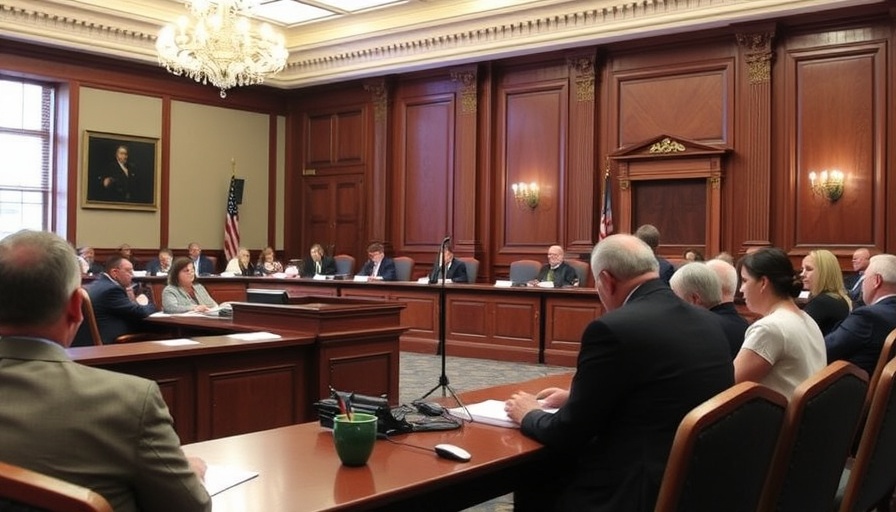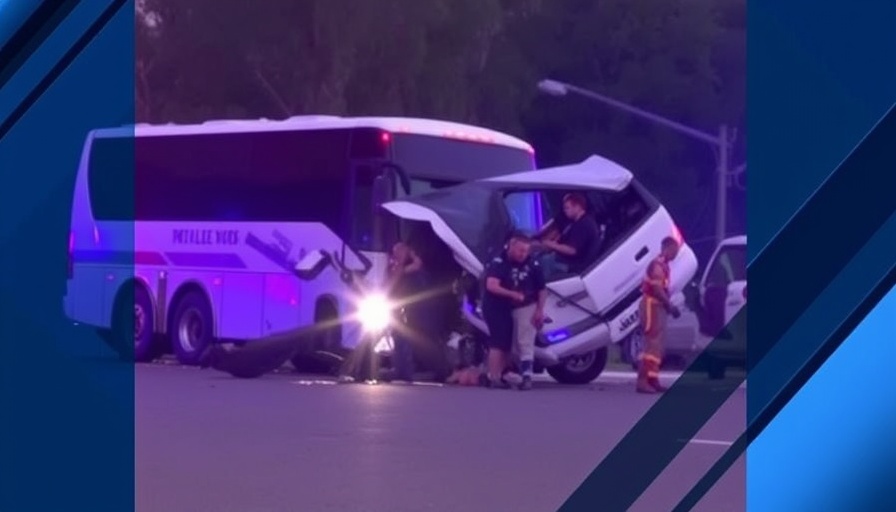
A New Chapter in Texas Legislation: Addressing Urgent Needs
The first special session of the 89th Legislature has officially commenced, showing a strong commitment from Governor Greg Abbott to tackle pressing issues that have arisen in recent weeks. With devastating floods claiming the lives of at least 135 individuals in the Texas Hill Country earlier this month, including 37 children, the urgency for improved infrastructure and emergency response services has never been more critical.
The Governor's Agenda: A Multifaceted Approach
As the session unfolds over the next 30 days, Abbott's agenda encompasses a broad spectrum of concerns, from disaster recovery to regulatory changes surrounding THC and redistricting. Current proposals include the elimination of Texas's STAAR testing requirements, as well as specific taxation reforms designed to alleviate the financial burden on property owners.
"We delivered on historic legislation in the 89th Regular Legislative Session that will benefit Texans for generations to come," Abbott stated, expressing the importance of continuing to address these pivotal matters.
Flood Response: Learning from Tragedy
The impact of the recent flooding has highlighted the necessity for better preparation and systems that can effectively warn populations of impending natural disasters. Legislators are now faced with the responsibility of rethinking how emergency response is structured, to not only aid recovery but also prevent such tragedies in the future. The pressing nature of this issue has led to calls from various stakeholders emphasizing the need for adaptive strategies that encompass infrastructure improvements and community preparedness.
The THC Regulations: Navigating New Waters
Another critical topic of discussion is THC regulations, particularly in the aftermath of Governor Abbott's veto of a previous bill that sought to impose restrictions on THC-infused products. As businesses and consumers express concerns, clarity over what 'better' regulations might entail is essential. Local dispensaries fear that the tightening of regulations may unfairly impede access to these products, leading to a significant pushback from the business community.
Michael Brown from Endo Dispensary and Wellness noted, "It appears good on the surface, but it looks like they're going to tighten it up where the average person can't do this." This conversation is particularly relevant in the context of Texas's evolving cannabis landscape, which has implications for public health and commerce.
The Impact of Redistricting: Political Ramifications
In the political realm, redistricting remains a contentious topic, particularly given recent discussions at the national level. As President Trump reportedly reached out to Texas's Republican congressional delegation, there are intentions to secure five new congressional seats that are strategically favorable. This potential shift in representation not only impacts political dynamics within Texas but also influences broader national conversations around electoral equity.
Comprehending the shifting landscape of political representation is increasingly vital, especially as voting rights and access to representatives continues to be a national discourse with widespread implications.
Looking Ahead: Preparing for Future Challenges
As this special session progresses, it will be essential to monitor the developments that arise from these proposed legislative changes. Each item on Governor Abbott's agenda is laden with the potential to reshape the landscapes of education, healthcare, and the economy in Texas.
Conclusion: What Lies Ahead for Texas?
The unfolding events during this special session will set the tone for legislative priorities in Texas and possibly pave the way for a more responsive and adaptive governance model moving forward. Whether through improved disaster response systems or a balanced approach to THC regulations, the need for thoughtful and inclusive policymaking is clearer than ever.
Keeping an eye on these discussions and outcomes is crucial for businesses, investors, and citizens who want to understand how legislation might shape their lives in Texas.
 Add Row
Add Row  Add
Add 




Write A Comment